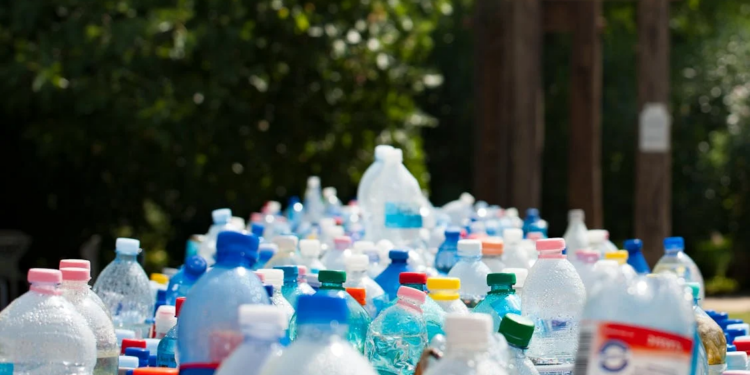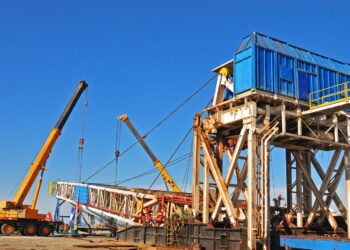In today’s rapidly urbanizing world, managing waste efficiently has become a critical issue for cities around the globe. As urban populations grow, so does the volume of waste generated, posing significant challenges for municipal authorities and residents alike. Effective waste management is essential for maintaining a clean and healthy environment and ensuring sustainable urban development. In cities like Columbus, Georgia, the role of professional waste management services, such as Columbus dumpster services, is increasingly vital in addressing these challenges.
Urbanization and Waste Generation
In light of this, the following are the impacts of urbanization: generation of waste, another factor brought about by urbanization. Most of the waste is generated from urban areas, with the world producing approximately one-third of its waste from urban cities alone. This is so because cities experience high population density, productivity, and development, which translates to increased consumption and waste production.
This waste extends from domestic waste products such as kitchen and bathroom wastes, industrial wastes, and construction wastes. This is because if effective waste management structures are not implemented, the cities will be overwhelmed and become unclean and uncomfortable, thereby presenting some health risks to the public.
Environmental and Health Impacts
Lack of proper sanitation can lead to adverse environmental effects and the spread of diseases and illnesses. Garbage pile-ups in cities pose a danger to society because they become an abode to pests and rodents, facilitating the spread of diseases. In the same way, waste not adequately disposed of may pollute the soil and/or water resources and have a long-term health implication. For example, plastic wastes have long durability and can take several hundred years to degrade, leading to pollution of land and water sources.

These risks may be eliminated by efficient waste management as it involves the collection, transportation, and disposal of waste in a way that has little or no effect on the environment and the health of the public. This concerns waste source separation, reuse, and proper environmental methods like composting and incineration with energy recovery. This way, dumpster services are still crucial in Columbus as they offer residents and companies proper and easy ways to dispose of their waste products.
Economic Benefits of Waste Management
Waste management has also added substantial economic rewards. Cities can also benefit from reduced costs of waste management and added years on existing landfill sites by managing to minimize the volume of waste dumped at these facilities. Recycling and composting programs equally employ people and foster economic growth by providing consumers with valuable commodities from waste products. For instance, recycling plants require employees to sort and process the canners and other items for recycling, while composting businesses require labor to handle organic materials and developing compost goods.
Further, efficient waste management will increase the value of properties and help attract businesses and tourists due to the better and cleaner surrounding city’s appearance. Cities that economically support modern waste management systems, such as those offered by Columbus dumpster services, benefit since their quality of life and economic productivity are enhanced.
Strategies for Efficient Waste Management
There are several key strategies that urban communities can adopt to improve waste management:
- Waste Reduction: Practices like reducing the use of packaging materials or reusable products by residents and businesses to curb the production of waste products.
- Recycling Programs: Adopting measures to promote recycling that includes educating the public and ensuring that there are receptacles for recycling different materials so that members of the public do not have to throw their recyclables with their regular garbage. This comprises making available bins for recycling, informing the public about the kind of reusable material, and encouraging the public to participate in recycling through offering incentives.
- Composting: Encourage residents to compost vegetable peelings, leaves, and other biodegradable materials that would have otherwise been dumped into the dump site. This will provide a valuable soil amendment for gardening and yard care.
- Public Education: Educating the public on how to manage their waste and how they can embrace the culture of recycling. Education campaigns that are targeted to the public can give information and knowledge that change behaviors and lead to an environmentally friendly culture.
- Partnerships with the Private Sector: Partner with private waste management organizations to provide them with more knowledge and equipment. Some of these specific services include dangerous waste disposal and mass recycling that may be beyond the scope of most municipalities in a given country.
The Role of Technology in Waste Management
Science and technology have also assisted in enhancing waste management in the modern world. Intelligent bins have some mechanical features, such as sensors that can help determine when they are complete; they can be used to optimize the route used by garbage trucks and, therefore, help save fuel. Further, waste-to-energy technologies, which utilize non-recyclable waste to produce electric energy and heat, are being used to manage waste while generating renewable energy.

Thus, by applying these innovative technological solutions, waste management in cities like Columbus can be improved to achieve cleaner cities.
Conclusion
Proper disposal and management of waste are critical in enhancing the wellness of people, nature, and the pocket of any city. It is, therefore, essential that, as cities expand and produce even more waste, measures that decrease the amount of garbage made, increase the amount of waste recycled, and increase the efficiency of waste management systems due to technological advancements are implemented.
This type of enterprise, such as Columbus dumpster services, is central to this process, offering the framework and knowledge required to manage the challenges of municipal waste. If cities adopt proper waste management as a pressing issue of concern, they can become cleaner, healthier, and more sustainable for their citizens and future generations.
















